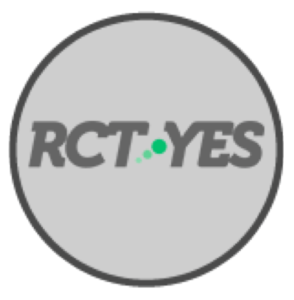 Public leaders — whether they’re helping run a state agency, a school system, a hospital, a set of Head Start centers or any other organization — are likely to implement changes over time, whether it’s adjusting programs or adding new services. Maybe it’s a new curriculum for students in a school district or new intake procedure for patients in a hospital. Whatever the change, how can those leaders determine if the change is actually effective?
Public leaders — whether they’re helping run a state agency, a school system, a hospital, a set of Head Start centers or any other organization — are likely to implement changes over time, whether it’s adjusting programs or adding new services. Maybe it’s a new curriculum for students in a school district or new intake procedure for patients in a hospital. Whatever the change, how can those leaders determine if the change is actually effective?
 Our focus today is new software, called RCT-YES, designed to help public leaders (and the researchers who work with them) answer that question. It was funded by the Institute of Education Sciences, the statistics, research, and evaluation arm of the U.S. Department of Education, and developed in partnership with Mathematica Policy Research. The software, available free to download online, is based on new statistical methods for analyzing data from randomized controlled trials (RCTs).
Our focus today is new software, called RCT-YES, designed to help public leaders (and the researchers who work with them) answer that question. It was funded by the Institute of Education Sciences, the statistics, research, and evaluation arm of the U.S. Department of Education, and developed in partnership with Mathematica Policy Research. The software, available free to download online, is based on new statistical methods for analyzing data from randomized controlled trials (RCTs).
To learn more, we are joined by Peter Schochet. He is a nationally known methodological expert in program evaluation and a Senior Fellow at Mathematica. He led the team that developed RCT-YES.
Web extra: For those with deeper expertise in evaluation, Peter Schochet gives an overview of how the RCT-YES software is designed to conduct a wide range of analyses using RCT or QED data and how the software uses new statistical methods for analyzing those data. [click here]